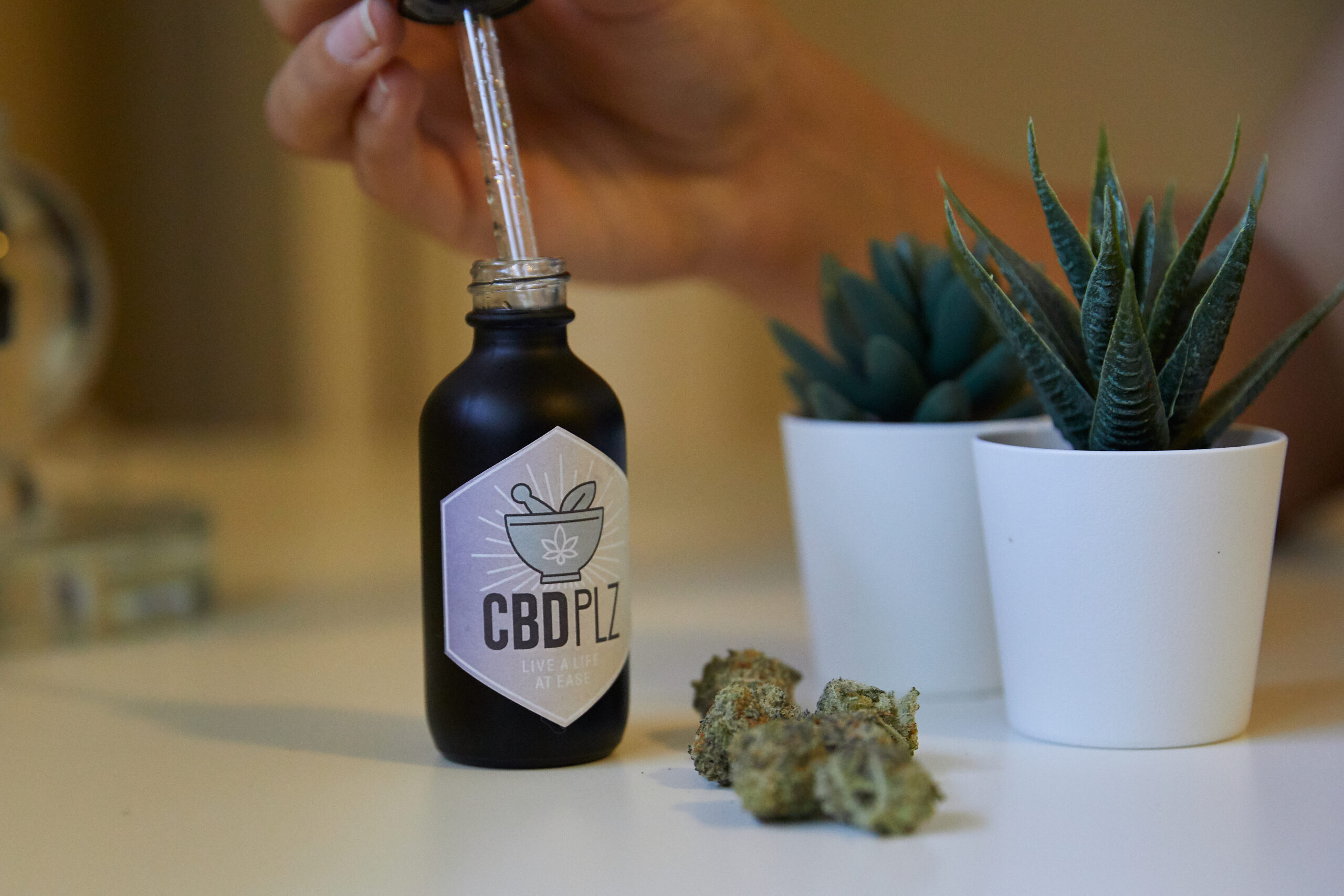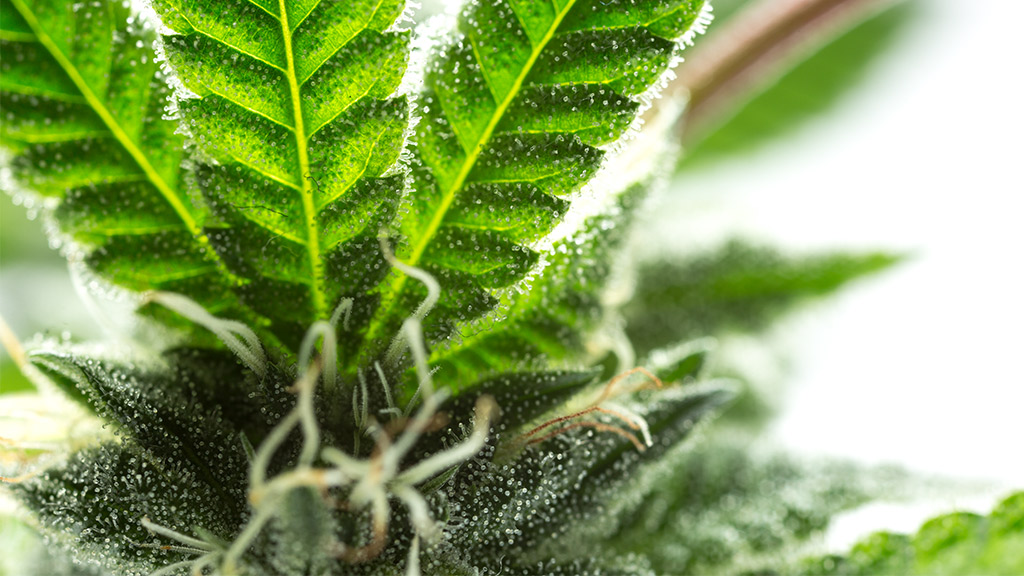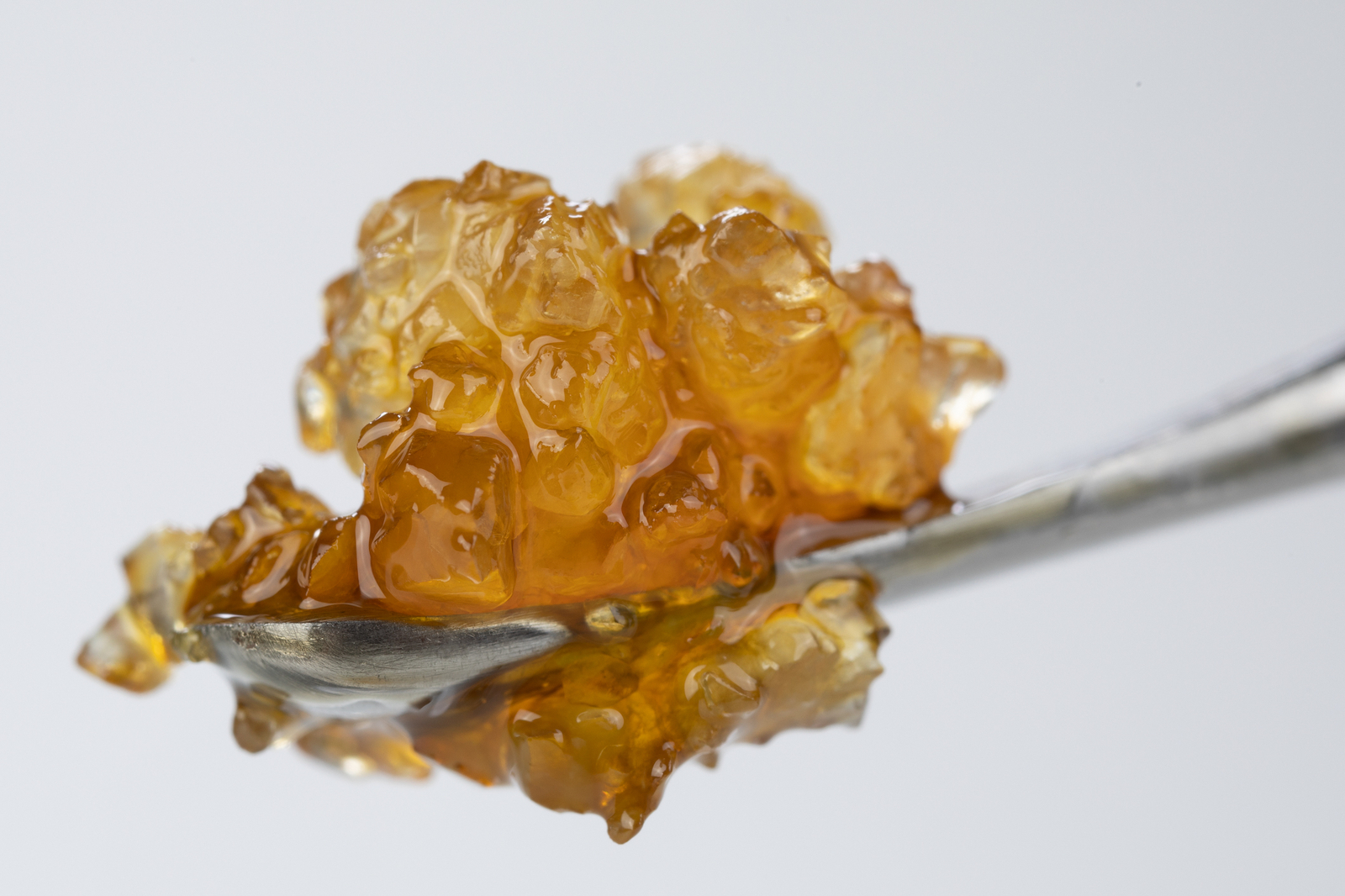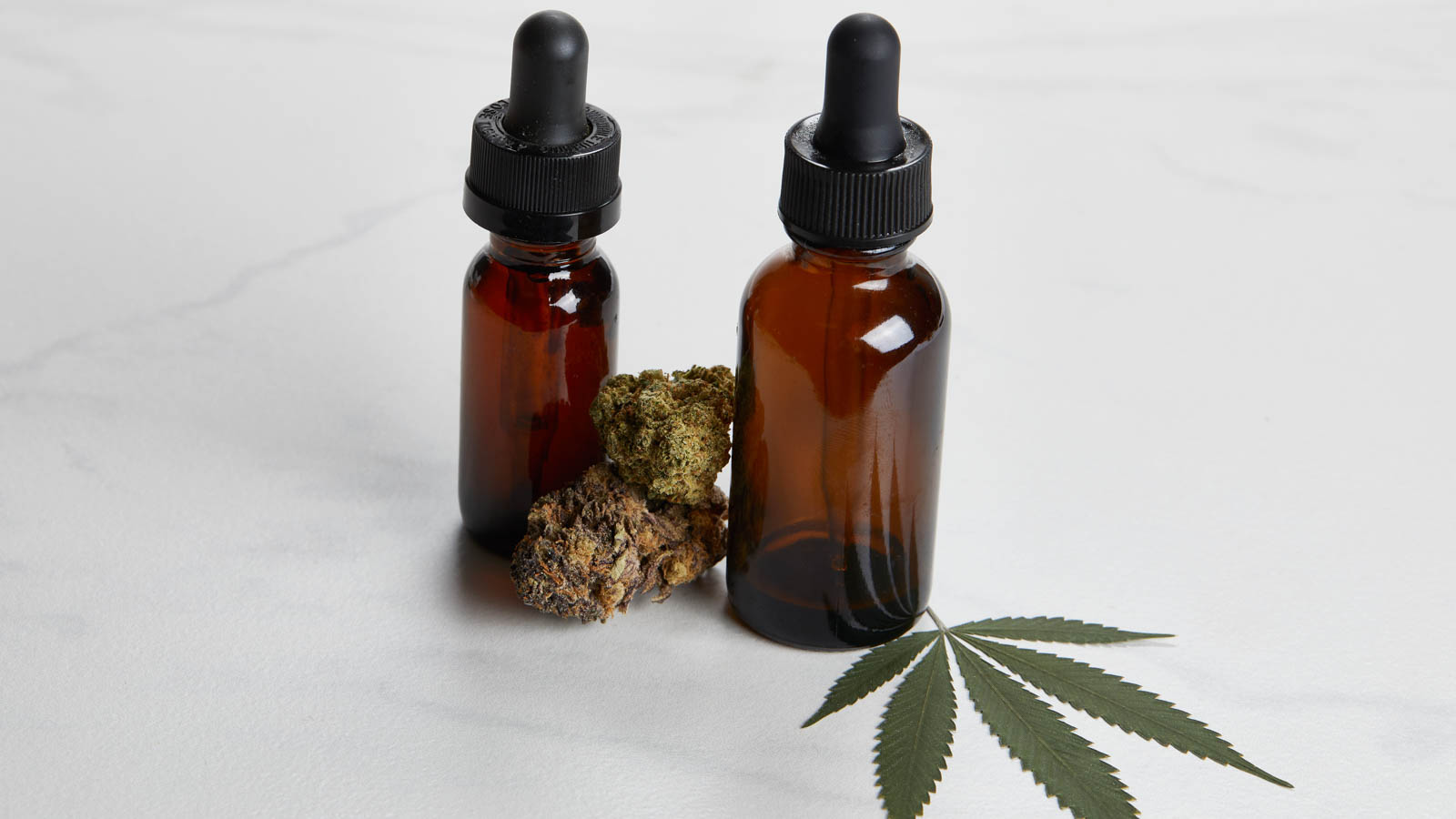The corner gas station has it at the counter, the wellness shop down the street displays it in the lobby, and your local dispensary carries a few brands and variations. Even your pets have options.
Yes, we're talking about CBD. Also known by its full name, cannabidiol.
CBD's rise in popularity stems from a complicated mix of federal hemp legalization and a lack of clear, consistent regulation, which can make navigating the market confusing.
So, how do you know where to buy CBD products, and how do you tell which products are high quality?
We break it down so you know what to look for, where to shop, and why doing your research matters.
Why CBD quality matters
The quality of a CBD product can directly affect your CBD experience, and in more ways than one.
Even though many CBD products on the market may look similar, their effectiveness, consistency, legal compliance, and, most importantly, safety can be worlds apart.
For instance, a product might look legitimate or claim to contain high levels of CBD, but without lab testing or proper quality control, it could be ineffective or even unsafe.
Don't let that discourage you from buying CBD products.
According to Dr. Bonni Goldstein, the CEO and co-founder of Goldstein Wellness and Medical Director and Owner of Canna-Centers Wellness & Education in Los Angeles, some of the most common misconceptions about CBD are that it's universally safe and works the same for everyone.
“Some assume that all CBD products are created equal, but in fact, the quality, purity, and cannabinoid content can vary quite a bit between products,” Dr. Goldstein says, adding that third-party lab testing and clear labeling are critical to success.
Another common misconception is that low doses, such as five or 10 milligrams, are always sufficient.
“In reality, CBD has a wide therapeutic dosing range, from as low as ten milligrams to upwards of six hundred milligrams or more per day, depending on the condition being treated and a person's unique physiology. Many people don't achieve meaningful results because they give up too soon or don't understand how to find an effective dose.”
So, how do you spot quality CBD?
And how do you find the right potency and dose?
Approach CBD shopping with a detective's mindset: Do a fair amount of research, know how to read labels, and consult with a knowledgeable clinician or budtender before buying CBD.
Three main types of CBD
You might find three types of CBD products at dispensaries, gas stations, and other retailers:
- Full-spectrum CBD: Contains CBD, terpenes, flavonoids, and other cannabinoids, including small amounts of THC (up to 0.3%) — tends to offer the strongest therapeutic benefits thanks to the entourage effect
- Broad-spectrum CBD: Contains CBD, terpenes, flavonoids, and other cannabinoids, but does not contain THC
- CBD isolate: Pure CBD (99%+), does not contain THC or other cannabinoids — often less effective on its own
Each spectrum type offers a unique cannabinoid profile that influences how CBD works in the body and how effective it is.
Full-spectrum CBD contains THC, while broad-spectrum and isolate don't contain any.
Full-spectrum CBD
Broad-spectrum CBD
CBD Isolate
Why does this matter?
Even though CBD products legally can't contain more than 0.3% THC (per the 2018 Farm Bill), even a small amount of THC can actually increase the therapeutic impact of CBD, says Mike Easton, a sales associate at Wellgreens Dispensary in Encinitas, California.
It's common for customers to think that pure CBD without any THC is going to be as effective, Easton says.
“I try and let people know that having even one milligram of THC mixed with their CBD is going to strengthen the efficacy greatly and provide much more relief.”
That's because when both cannabinoids are present, even in low doses, the CBD tends to work more effectively, especially for conditions like anxiety, inflammation, and pain. This is known as the entourage effect.
So while it's common to find THC-free CBD products (broad-spectrum or isolate), you might actually benefit more from a product that contains full-spectrum CBD.
Of course, if you're getting drug tested or sensitive to THC, you might prefer broad-spectrum CBD products.
Quality indicators every CBD buyer should know

Image lightbox

CBD might be legal nationwide, but it's not strictly regulated in most states. That's why it's super important to know what to look for when shopping for good-quality CBD.
No matter which type of CBD product you're into, there are a few things you should check for to ensure it's not only going to work but also be safe to consume.
- Third-party lab testing: A Certificate of Analysis (COA) showing the product was tested for CBD and THC content, pesticides, heavy metals, solvents, and microbials
- THC content: A THC level that's below the legal limit (0.3%)
- Transparent ingredient list: A complete list of cannabinoids, carrier oils, flavorings, and additives
- “Hemp-derived” statement: A note that the CBD is derived from industrial hemp, not marijuana
- Source of hemp: Specifying the origin of the hemp used in the product
- Spectrum type: Full, broad, or isolate
- Manufacturer info: Company name, batch or lot number, website, and contact details
- Certifications (if any): USDA Organic, Vegan, Cruelty-free, Gluten-free, GMP-certified, Non-GMO, etc.
- Directions and dosage: How much (per container and dose), how often, and how to consume the product
- Warning statements: Potential health risks, impairment disclaimers, and warnings for children and pregnant women
Gas station or dispensary CBD: what's the difference?
So, is there a difference between gas station CBD and dispensary CBD?
What about CBD sold at a medical office or wellness center?
It's less about where you're buying your CBD and more about the product's origins and oversight.
While you can generally expect to find higher-quality, full-spectrum CBD products at dispensaries and medical offices, and cheaper CBD isolate products at gas stations or corner stores, that doesn't mean gas stations don't have good CBD, or that dispensaries don't have bad CBD.
That said, there are a few factors to watch out for, whether you're at a dispensary, medical office, wellness center, gas station, or smoke shop.
Price point
The biggest draw toward gas station CBD is its affordability and availability. But when it comes to CBD products, you get what you pay for.
“When someone asks about the difference between a $15 CBD product and a $50 one, I compare it to food,” says Joey Heggem, the general manager of Buzz Cannabis in Mission Valley, California. “You can get a dollar greasy fast-food burger or a $20 grass-fed organic burger. They're both technically burgers, but the quality, sourcing, and how they affect your body are completely different.”
Heggem explains that a higher-priced CBD product will likely be made from premium, organic hemp, extracted using clean methods, backed by transparent lab testing, formulated for better absorption, and include a broader range of cannabinoids like CBG or CBC.
On the other hand, a $15 bottle could be mostly filler oil, have little to no CBD, or come with no lab verification at all, he says.
“If a product's price sounds too good to be true, it probably is,” Easton adds. “If you're ingesting something, especially something that you're looking for health benefits from, you're better off spending a little more for a superior product.”
But here's where things get tricky: If the cost is higher, you might think that means the product contains higher amounts of CBD and/or THC. That's not always the case.
Again, pay attention to the packaging — unless there is a Certificate of Analysis (COA) that proves that the product is worth the price, you could be buying snake oil.
Labeling
In some states, like Oklahoma and Wyoming, a lack of oversight and manufacturing transparency has flooded the CBD market with products that haven't been third-party tested. As a result, many of these products are low-quality or potentially contaminated. And while these are usually the products that end up in gas stations and smoke shops, they could be sold anywhere.
What makes this so problematic is that untested CBD products often have misleading or inaccurate labels. The U.S. Food & Drug Administration (FDA) tested various CBD products in the retail space, and many were found not to contain the levels of CBD they claimed.
Even certain ingredients could indicate that the label isn't accurate.
“Products containing synthetic or semi-synthetic cannabinoids should be avoided,” says Dr. Goldstein. “These products are often mislabeled and not tested, and can be harmful, especially when vaporized, and have been linked to serious health concerns.”
Inaccurate labels can lead consumers to consume cannabinoids or ingredients they shouldn't, or even put off getting proper care from legitimate, lab-tested CBD or other wellness products.
Again, check the label for a COA and any other quality indicators. If things seem off, the product might be, too.
Location
“I always recommend purchasing U.S.-grown CBD,” says Dr. Goldstein.
CBD made from non-US-grown hemp may come from farms with contaminated soil, which increases the risk of heavy metals or other toxins in a CBD product.
Another warning sign, says Dr. Goldstein, is the absence of a physical address, contact information, or company transparency. If any of these are missing or especially hard to find, it could mean the product is low quality.
What the pros recommend

Image lightbox

Whether you're using CBD for a medical condition or for general wellness, the best way to choose a quality CBD product is by getting advice from a dispensary budtender or healthcare professional who works in the cannabis space.
This is especially important because cannabinoid absorption and metabolism vary greatly between individuals, depending on factors such as genetics, gut health, liver enzyme function, and concurrent medications.
“There is no one-size-fits-all answer,” says Dr. Goldstein.
She recommends customers consider both the spectrum type and the delivery method when choosing a CBD product. The spectrum influences the product's efficacy (full-spectrum CBD tends to be the most effective), while the delivery method affects onset time, duration, and bioavailability.
For example, inhaling CBD provides almost immediate effects, but they only last about three to four hours, whereas edibles have a delayed onset, but the effects can last from six to eight hours or longer.
Start by asking yourself, “How do I want to feel?”
“That's the one,” says Adriana Hemans, director of marketing for The Artist Tree, a 10-location dispensary in California. “Not 'what's strongest?' not 'what's cheapest?' We've seen time and again that folks get the best results when they start with that question. It helps our team point you to the right product.”
You should also ask budtenders and healthcare professionals questions like:
- Where was the hemp sourced from?
- What extraction method was used?
- What's the best format for what you're using this for, like pain, sleep, or anxiety?
“If a budtender can't answer those, or just gives a vague suggestion, that's a red flag,” adds Heggem.
Proper dosing and product selection are also important.
Potency refers to the amount of CBD in a product, usually listed in milligrams per serving and per bottle. Dosage is how much a person actually takes. Because CBD has a biphasic effect, meaning low and high doses can produce opposite effects, figuring out the right dose is crucial.
“This is why I recommend starting with a low dose and gradually increasing until the desired effect is achieved, often referred to as the 'start low and go slow' approach,” says Dr. Goldstein. “In my experience, many people stop using CBD too soon simply because they're unsure how high the dose may need to be or how to adjust it properly.”
Dr. Goldstein adds that anyone taking medications should consult with a clinician before beginning CBD because the cannabinoid can interact with many different medications.
Where to buy high-quality CBD
Although hemp-derived CBD is federally legal under the 2018 Farm Bill, states can set their own rules, so where and how you can legally buy CBD products depends on local laws.
Some states only allow CBD for medical use, ban certain product types, such as CBD edibles or smokable hemp, or require strict lab testing and labeling. Others have loose or unclear regulations, making high-quality products harder to find.
Most states will let you buy and consume CBD, so depending on your state or region, you can find quality CBD products at licensed dispensaries near you for pickup or delivery on Weedmaps.
If you have a qualifying medical condition, you can get CBD from licensed dispensaries or medical offices in your state.
The bottom line
With so many CBD products on the market, it can be overwhelming to know where to buy CBD. But where you buy it and what you look for make the difference.
Whether you're picking something up at a dispensary, doctor's office, or even your local smoke shop, check for third-party lab testing, clear labels, and where the CBD actually comes from.
And if you're ever unsure, just ask someone who knows their stuff, like a budtender or a clinician.




